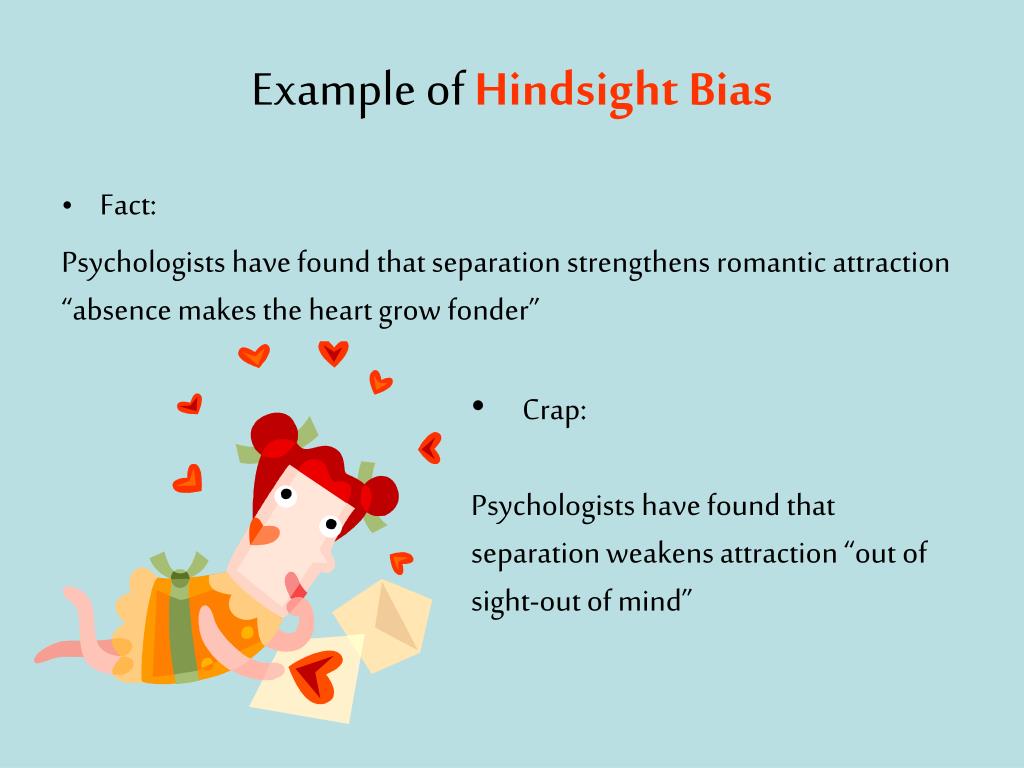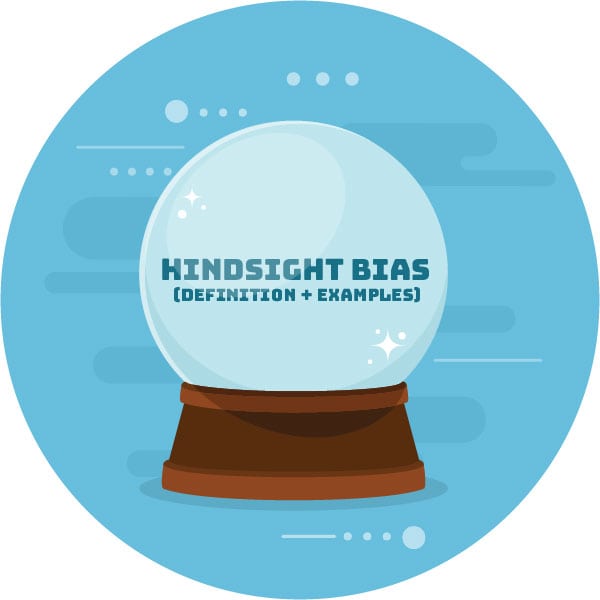

Also called creeping determinism, it is the tendency to think that past events were more predictable than they actually were.Īfter an event occurs, we think we could have predicted it, or we believe that we knew the results with a high degree of certainty before it occurred. It is a cognitive bias that occurs when we know what has happened but we modify our memories of the previous opinion in favor of the final result. Thus arose the concept of hindsight bias, also knew-it-all-along-phenomenon or creeping detrminism. Thus he found that people tend to assign a higher probability of occurrence to whatever result they have been told to be true. Then he asked them to assign a probability for each particular outcome. That same year, Fischhoff conducted another experiment in which he gave people a short story with four possible outcomes, but indicated in advance that one of them was true. In other words, people tended to think that they knew what was going to happen, although they did not. They found that they overestimated the probabilities for the events that had occurred and downplayed the rest. Some time after President Nixon returned, those same people were asked to recall or reconstruct the probabilities they had assigned to each outcome. In the mid-1970s, researchers Beyth and Fischhoff conducted a very interesting experiment in which they asked participants to judge the probability that certain results would occur before Richard Nixon traveled to Beijing and Moscow. Historians are also prone to this bias when describing the outcome of a battle and even judges are not save when they judge a case as they think that both the accused and the victim could have foreseen in a certain way what was going to happen. Doctors, for example, often overestimate their ability to have foreseen the outcome of a case and claim to have known it from the start.
HINDSIGHT BIAS PSYCHOLOGY PROFESSIONAL
This hindsight bias also extends to the professional area. In fact, it doesn’t just happen to us on a personal level. That tendency to think that we knew what was going to happen can play tricks on us and cause us to blame ourselves for things that we could not really foresee. We think we knew what was going to happen, when in reality we did not. To learn more, check out CFI’s Behavioral Finance Course.When we look at the past with the eyes of the present, the current knowledge often distorts our memory. Thank you for reading this CFI explanation of hindsight bias in finance. So, how do we guard against this bias? An investment diary, comparing outcomes to the reasoning behind our investment decisions, is a good way to keep this hindsight bias in check. We talk about it as a limit to our learning because we tend to believe after the fact that we knew about something all along. Hindsight bias prevents us from recognizing and learning from our mistakes. An investment diary also helps mitigate against the bias of self-deception, which again limits our ability to learn.

We need to map the outcomes of our decisions and the reasons behind those decisions to learn from both our wins and our losses. In the other behavioral finance articles, we’ve talked about the need to keep an investment diary. Learn more in CFI’s Behavioral Finance Course. However, if you examine the history, you learn that analysts or investment professionals who were screaming that there was a problem at the time weren’t listened to, in fact, they were laughed at and investors largely ignored their warnings. If you talk to many people now, they may state that all the signs were there and everyone knew it was coming. This bias is an important concept in behavioral finance theory.Ĭonsider the 2008 financial crisis or the dotcom bubble of the late 1990s. Someone may also mistakenly assume that they possessed special insight or talent in predicting an outcome. Hindsight bias is the misconception, after the fact, that one “always knew” that they were right.


 0 kommentar(er)
0 kommentar(er)
